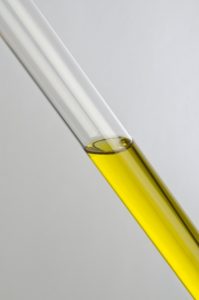Although marijuana remains illegal at the federal level, economists are predicting that such laws – particularly in the face of growing public support and state approval – won’t keep the free market down. It has the potential to balloon to a $100 billion industry, with states potentially raking in $28 billion a year in tax revenue.
Many people assume this cannabis industry is little more than buying and selling plants. The reality is that as technology has evolved, we are seeing ever-more sophisticated means of processing the drug, which has led to a host of offshoot industries, such as distilling and extraction.
Marijuana can be distilled much the same as liquor, producing stronger forms that can be manufactured into smaller products, such as perfumes, creams, pens and battery kits. Extraction equipment allows the drug to be extracted and used in everything from waxes to oils. Potent extracts can also be used in vaporizers – which may have triple the strength of a typical marijuana cigarette you might have found on the street in the 1960s.
In fact, according to a recent analysis by Brightfield Group, a marketing research firm, there has been a marked shift in the industry away from the so-called “flower use” of the drug, which involves different ways to use the buds. Flower use was most popular when the drug was totally illicit. However, as marijuana has emerged from the shadows, becoming more mainstream and accepted by state and local laws, businesses are finding more and more sophisticated ways of processing it. That means concentrates, such as those used in edibles and other products, are becoming more popular, while flower use has been falling out of favor.
That doesn’t mean we’ll see sales of loose marijuana drop off completely. In fact, that same research firm anticipates sales of flower use marijuana is likely to double over the next handful of years. It’s just that sales of concentrated marijuana products are expected to triple.
Another reason for the evolution of the marijuana industry to one more focused on extracts and distilled options is the negative connotation associated with smoking. People are increasingly health conscious, and many people use the drug as much for its medicinal properties as for the psychoactive effects. Marijuana has in many ways benefited from the early association with health and wellness that medical marijuana afforded. But people still may be gun-shy when it comes to smoking it. Edibles, topical creams and vapors provide an attractive alternative.
These kinds of options mean public support and demand for marijuana that is accessible and available is higher than ever. A growing number of states are grappling with the fact that even if they don’t allow marijuana or concentrates, they may be surrounded by states that do. Utah is one example. Indiana is another.
In this environment, the extract cannabis business model is expected to grow. Cannabis concentrates that are legally produced and sold for consumption can be done in everything from capsules to lip balm, all of which gives people more options. Plus, concentrated cannabis offers a larger doses for those who find smoking unpleasant. Flavors tend to be cleaner and more pleasant. Home production is generally banned for health and safety reasons, even in states where it is legal, which is another reason specialized companies are gaining so much traction.
The Los Angeles CANNABIS LAW Group represents growers, dispensaries, collectives, patients and those facing marijuana charges. Call us at 949-375-4734.
Additional Resources:
Is cannabis too lucrative to be illegal? Aug. 9, 2017, By Ed Leefeldt, Moneywatch
More Blog Entries:
New State Senate Bill Would Prohibit Cannabis Advertising, Aug. 10, 2017, Marijuana Business Attorney Blog
